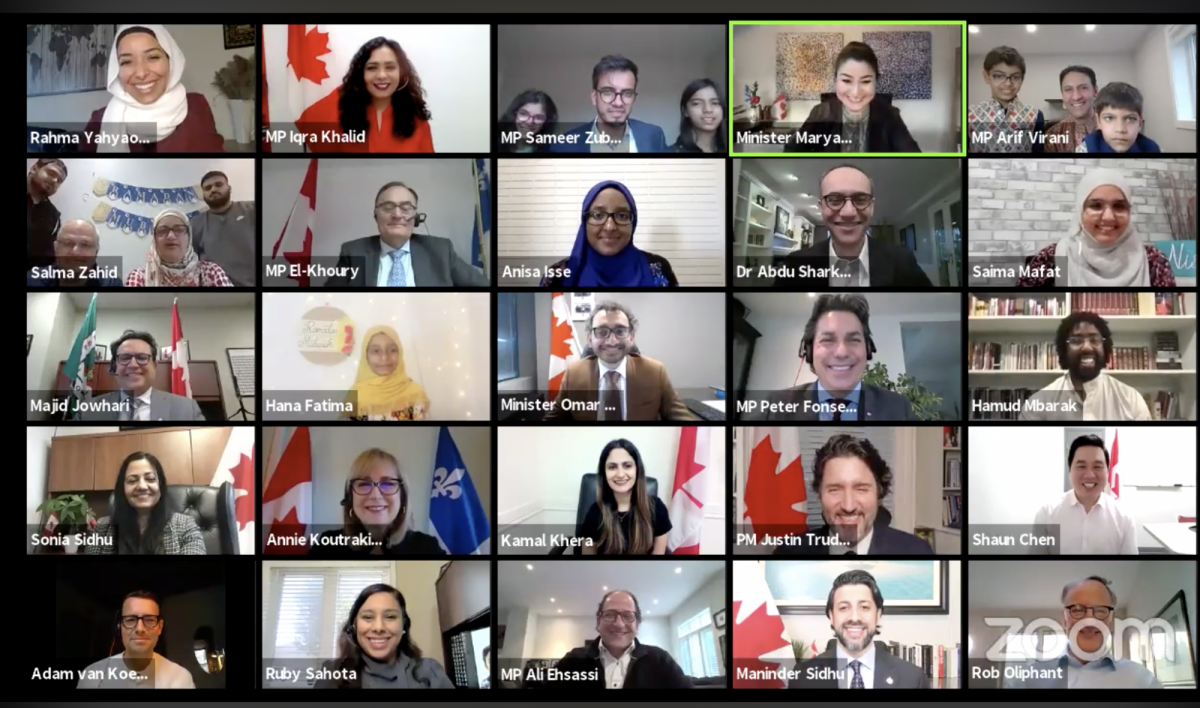
Nursing PhD, master’s grad speak to Parliament about cancer, COVID
Tara Horrill, who is set to graduate with her PhD from the College of Nursing, Rady Faculty of Health Sciences on June 15, and Anisa Isse, who earned a UM master of nursing degree in 2019, both had the rare opportunity to speak to members of Parliament over the last two months.
Horrill was one of 24 researchers who presented to Research Canada’s Parliamentary Health Research Caucus (PHRC) as part of an online event co-hosted by the Canadian Cancer Society on April 29.
The PHRC is a non-partisan forum created in 2009 that engages parliamentarians in events that showcase Canadian health research and health innovation. Horrill said there were about 40 members of Parliament in attendance at her panel discussion.

Tara Horrill
“It was a unique experience and very exciting. It’s not very common for people at my stage of my career to talk to people who are sitting in Parliament,” she said.
Horrill’s work looks at the accessibility of cancer care in Canada, particularly for Indigenous people.
“In Canada, First Nations peoples, Inuit and Métis are diagnosed with cancer at later stages more often than non-Indigenous Canadians. In my clinical practice, this is something I saw on a fairly regular basis,” she said.
She noted there are several barriers to accessing cancer care among Indigenous peoples, including racism and discrimination within the health-care system, geography and socioeconomic status. Another major barrier is the challenges created by legislation and policies that lead to jurisdictional ambiguities or disputes about responsibility for care.
“A good example of this is the delivery of palliative care to status First Nations who live on reserve,” she said. “The federal government will not fund or deliver palliative services to reserves and the provincial government cannot deliver those services because the reserves are federal jurisdiction. So there’s this issue where they either have to be cared by family members who haven’t been trained and don’t have the resources, or they have to move away from their community to receive end-of-life care.”
She noted her presentation also led to a discussion with Marty Morantz, member of Parliament for Charleswood, St. James, Assiniboia and Headingley, and an upcoming meeting with federal Health Minister Patty Hadju.
“It’s always exciting when your work has policy implications, to speak to people who actually make policies,” she said.
On May 6, Isse spoke to a group of Muslim members of Parliament and others about being a nurse working in long-term care during the COVID-19 pandemic. Among those in attendance was Prime Minister Justin Trudeau.

Anisa Isse
“My faith calls me to excel in everything I do and to help others, so being in a pandemic has not changed my commitment,” she told the group.
She said it is shocking to see the number of seniors that have lost their lives to COVID-19. She also pointed to data that suggests newcomers to Canada, persons of colour and those living in poverty are disproportionately affected by the virus.
“We need solutions that reduce the pressure on the health care system by addressing systemic social issues,” she said.
She discussed the stress of the pandemic on essential workers and the importance of getting vaccinated.
“We are juggling to keep our families and those we serve safe,” she said. “My greatest anxiety over the last year has been worrying about catching COVID-19 from work and spreading it to my family, or vice versa.”
Isse is currently working as a nurse in long-term care and as a research assistant on a project related to refugee health care provision.






